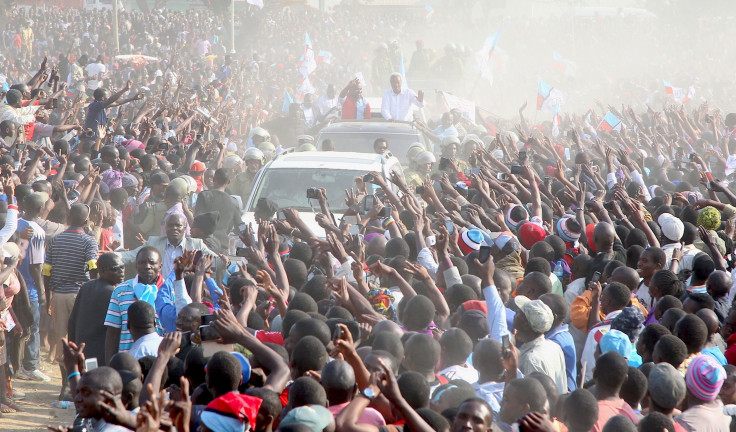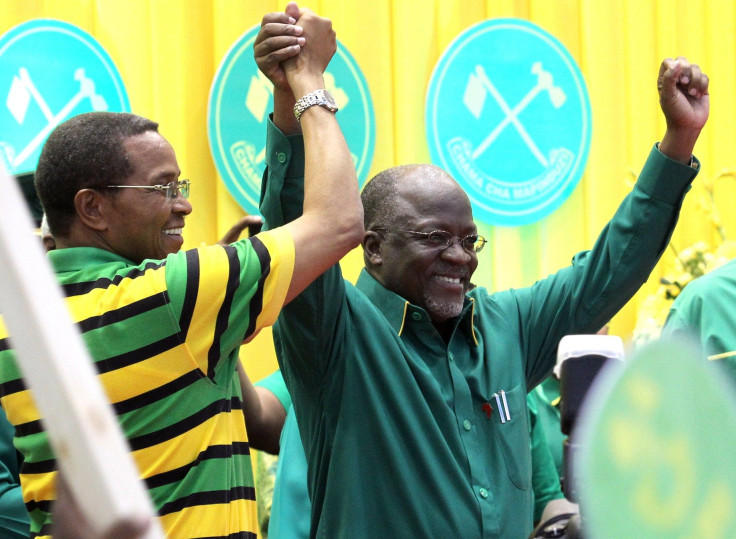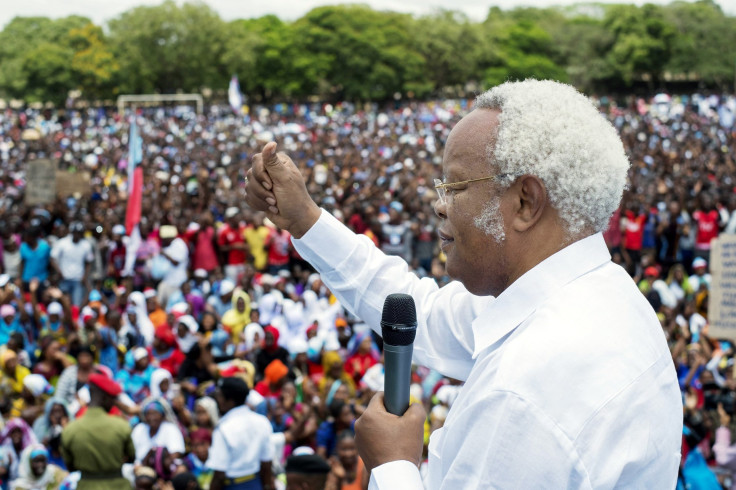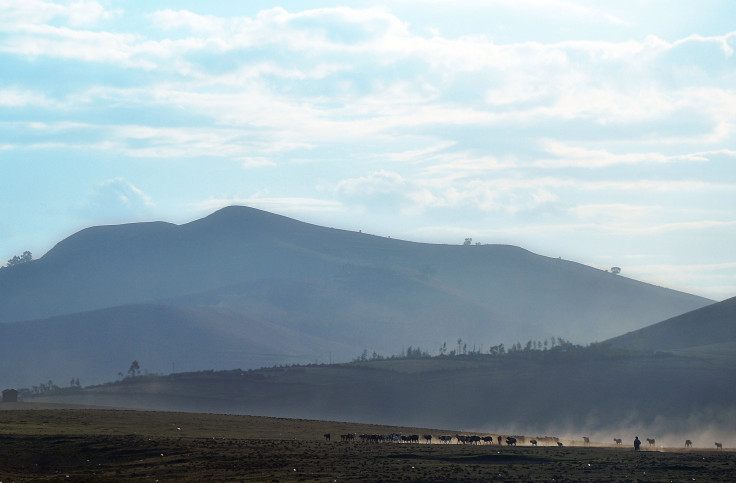Tanzania Election 2015: Guide To Presidential Candidates, Key Issues, Voting Process and Poll Results

Tanzanians are heading to the polls Sunday with a chance to make history in what could be the most competitive presidential election ever for the East African country. It also will be the first time on mainland Tanzania that opposition parties have chosen to unite and field one candidate for president against the dominant governing faction and the longest-reigning ruling party in Africa.
The ruling Chama Cha Mapinduzi (CCM) party has been blamed for the country's reviled corruption, and many Tanzanians are calling for change. But the main opposition candidate, Edward Lowassa, is a former member of the governing faction and was accused of fraud himself. Voters want change, analysts said, and whoever wins will need to demonstrate his trustworthiness by forming a government that can tackle corruption once and for all and make significant strides in combating economic disparities and poverty.

There are several candidates running for president, but two in particular have gained the most traction in the mainland's upcoming election: John Magufuli and Lowassa. Magufuli, Tanzania's minister of works since 2010, is the presidential candidate for the CCM. Magufuli, 55, has been a member of parliament for 20 years and has held various ministerial posts, including livestock and fisheries, lands and human settlement, as well as works.
On the other end of the political spectrum, Lowassa, a former member of the ruling party who is now a member of Chadema, the main opposition faction , has held various positions in government over the years. Most recently, the 62-year-old served as prime minister of Tanzania until 2008, when he was forced to resign amid allegations that he lobbied the government to extend an energy contract. Although he has fiercely denied all accusations of fraud, the scandal earned Lowassa the nickname "Lo-Rushwa," which means bribe in Swahili.
Prior to the corruption scandal, Lowassa was known for being minister of water and livestock development. He defected from the ruling CCM party this year after he failed to get the the nomination for the presidency. In turn, he joined Chadema, which united with three other opposition parties under the collective Ukawa and designated Lowassa as its presidential candidate.

Presumably referring to Lowassa, Magufuli said at a recent campaign rally in Lindi municipality that his presidential candidacy has caused power-hungry, corrupt leaders to vacate the ruling party and seek nominations elsewhere. If elected, Magufuli has vowed to deal with crooked officials by establishing a special court that would swiftly handle corruption cases, according to Tanzanian newspaper the Citizen.
Lowassa has also pledged to fight corruption. Speaking at a campaign rally in Tanga region earlier this month, Lowassa said the ruling party's indecisiveness and poor performance was a major cause of government corruption and extreme poverty in Tanzania.
"I can assure you today that, if elected in October polls, my government will make many changes by improving this country's economy and 'wananchi' lives in general," he said, using the Swahili term for "citizens." "We need to speed up changes," he said, according to Kenyan newspaper Daily Nation .

While Lowassa has managed to draw large crowds to his rallies, experts said that, ultimately, Tanzanians may not vote for him because of his former ties to the ruling CCM party and his scandal-ridden past. "There's clear popular enthusiasm for something different than the same old, same old CCM again," said J. Peter Pham, director of the Africa Center at the Atlantic Council, a think tank in Washington, D.C. "It's hard to run an anti-corruption campaign when he was forced to resign in 2008 under the shadow of financial impropriety."
A survey released Sept. 22 showed Magufuli has established a significant 40-point lead against Lowassa. About 65 percent of respondents said that if elections were held on that day, they would vote for Magufuli, according to the poll conducted in mainland Tanzania, which did not include voters from Zanzibar, a semi-autonomous Tanzanian archipelago of islands off the coast of East Africa. Another 25 percent said they would vote for Lowassa, while the remaining 10 percent of respondents chose from among the six other presidential candidates, refused to answer or were undecided.
The country's economic progress has for the most part not benefited the agricultural sector, which is comprised mainly of small farms in rural areas and is in desperate need of investment. Yet Tanzania's economy depends on agriculture. The sector employs 80 percent of the country's workforce in a population of nearly 50 million, and it accounts for one-quarter of GDP as well as 85 percent of exports. Whoever is elected president of mainland Tanzania must enhance government support and investment in "smallholder farmers," experts said.
The president of Tanzania is elected by popular vote to serve a five-year term and must obtain a majority, according to the national constitution . A constitutional law mandates that Tanzanian presidents step down after serving a maximum of two terms. The 2015 presidential election for mainland Tanzania is scheduled to take place on Oct. 25.
Semi-autonomous Zanzibar is also slated to hold its 2015 presidential election Sunday. The CCM, the mainland's ruling party, is also popular on the offshore island.
After Tanganyika merged with Zanzibar in 1964 to form Tanzania, the country functioned exclusively as a one-party state for decades. Tanzania held its first multiparty election in 1995, and the races have since grown more competitive.

A final tally for Sunday's presidential poll could be announced within a week of voting. The 2010 presidential election results were declared four days after polls closed. Experts said Tanzanians can expect a tight race.
"I think it's going to be the most competitive race we've seen," Pham said during a telephone interview. "The one major advantage that the ruling party has is the ground game. It's a party that has been in power long enough that it's the longest reigning ruling party in Africa."
© Copyright IBTimes 2024. All rights reserved.





















